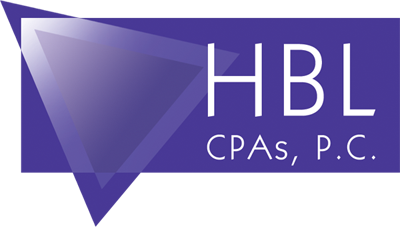Cash Flow Strategies in an Era of Uncertain Federal Grant Funding
In 2025, organizations within many industries face an unpredictable funding environment. Delays in disbursements and shifting federal priorities have made sustaining cash flow a critical concern. For example, recent policy changes have temporarily paused certain federal grants, creating ripple effects across many sectors. In this climate, cash flow stability is essential, and planning for the future becomes an everyday occurrence as the impact of changes in federal guidance and executive order flows down from the top. At HBL, we understand fast-paced financial changes. We’ve gathered a few strategies tailored to today’s reality, along with how HBL CPAs can help guide organizations like yours through them.
What Does a Federal Grant Funding Freeze Mean for Business?
While the federal grant funding freeze from January 2025 is no longer in effect, there still may be existing trickle-down effects for nonprofit entities applying for new federal grants. Existing grants are now able to receive funds. Throughout 2025-2026, there will be additional reviews of federal programs that may impact various areas of business at any time. Stay alert and stay abreast of the news to plan for impacts.
How to Plan for The Future
Scenario Planning and Reforecasting
Federal funding uncertainty demands agile financial planning. Developing multiple budget scenarios (optimistic, moderate, and conservative) can help you prepare for delayed or reduced funding. Regular re-forecasting allows you to adjust quickly based on new developments.
HBL recommends setting up recurring, regularly rescheduled reviews of the financial plan with the respective leadership. This way, you’re always on top of what’s to come.
HBL CPAs’ Outsourced CFO Services provide strategic financial modeling and forecasting. We help clients stress-test their budgets and identify cash gaps before they become emergencies.
Of equal importance is a regular review of your federal contracts and how your organization and staffing requirements may be affected should any of the existing contracts not be renewed. Similar to the various general budgeting scenarios, consider the number of staff required for each grant you have now, analyze the likelihood of each contract’s renewal, and how that would impact the number of employees you need to fulfill those contracts. That allows you to actively plan for changing staff levels by not filling certain positions vacated through attrition and focusing on staff that can be charged to multiple contracts, for example. This advance planning may help you avoid a reactive furlough in the future.
Strengthen Internal Controls and Audit Readiness
With increased scrutiny on how grant funds are used, strengthening your internal controls is a critical step in safeguarding both current and future funding. A proactive internal control review can help prevent compliance issues before they arise.
Our team supports internal control studies, especially for clients undergoing single audits or managing multiple funding streams. Staying compliant with the Uniform Guidance is key to keeping your organization audit-ready and highlighting your organization’s commitment to an appropriate internal control environment and responsible stewardship of public funds during any desk reviews from federal agencies, which could be used by those agencies as a basis for determining which nonprofit entities will receive new grant awards.
Diversify Revenue and Build Reserves
If your organization relies heavily on federal grants, now is the time to diversify. Nonprofits might consider launching fundraising initiatives, while construction and real estate firms can increase their focus on private contracts and remain cautiously optimistic surrounding government contracts.
Building an operating reserve; even just 2–3 months’ worth of expenses can serve as a buffer. HBL CPAs helps clients in nonprofit organizations, construction and real estate monitor cash at the project level and optimize reserve-building efforts.
If your organization does not have a line of credit in place, now is the time to reach out to your banker and discuss. Line of credit approval can be a time-consuming process, and it is far better to be approved for a line you don’t ever need to use than to wait to begin the application when you don’t have enough cash to fund your next payroll.
Cost Containment and Tax Planning
Cost containment doesn’t have to mean slashing services. Instead, it involves identifying discretionary spending, renegotiating vendor contracts, and delaying non-essential investments. Combined with effective tax planning, these actions can release much-needed liquidity.
Again, doing regular scheduled reviews of costs and budgeting can help you to maintain this process moving forward. Bonus – understanding where you’re spending money can help you be better prepared come tax time.
HBL CPAs’ Tax Preparation & Planning Services help identify credits and deferrals that improve your cash position. This is especially useful in industries like healthcare and real estate, where accelerated depreciation or credits like the Employee Retention Credit may apply.
Industry-Specific Cash Flow Strategies
Each industry we serve has unique funding and cash flow challenges:
- Construction: Delays in infrastructure or HUD-funded projects make it essential to plan for timing gaps. HBLCpa supports job costing analysis and cash flow forecasting for contractors managing multi-phase work.
- Healthcare: With potential shifts in HHS grant allocations, healthcare providers should strengthen their revenue cycle management and explore new reimbursement channels. HBLCpa helps healthcare clients with forecasting and scenario modeling.
- Nonprofits: Stay compliant by reviewing grant agreements and reporting obligations. HBL CPAs supports grant compliance audits and audit preparation so nonprofits can retain current funding and attract new sources.
- Estates & Trusts: While not grant-reliant, these entities should brace for shifts in tax policy. Our team advises on tax strategy and trust administration to ensure liquidity and compliance under evolving regulations.
- Real Estate: Delayed disbursement from federal housing programs or tax incentives can stall projects. HBL CPAs offers real estate tax planning and helps clients pursue alternative financing while staying aligned with HUD or LIHTC requirements.
Navigate Uncertainty with Confidence
2025 may bring unexpected changes in the federal funding landscape, but organizations that plan ahead, remain agile, and partner with experienced advisors will weather the storm. HBLCpa is here to help with strategic forecasting, grant compliance, tax optimization, and internal control evaluations tailored to your industry. Explore how our services can help your organization strengthen cash flow and gain financial clarity in uncertain times.


